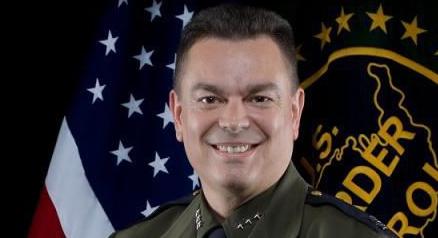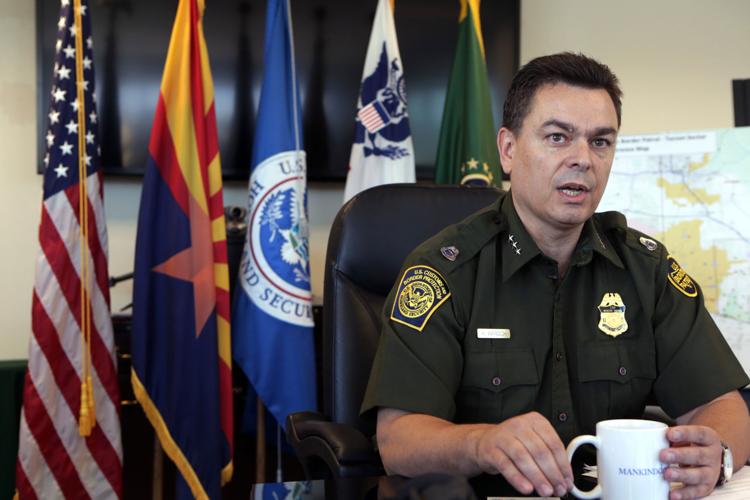For the new Border Patrol chief in Tucson, moving agents closer to the border is a top priority.
Rodolfo Karisch took over as chief of the Tucson Sector Aug. 20 after serving as chief in the Del Rio Sector in Texas. He invited the news media for a meet-and-greet Wednesday at sector headquarters in Tucson.
Karisch said he wants to focus on “forward deployment” at the border and increase access to the border, where he said 19 percent of the area can’t be reached by road.
More incentives are needed for agents who work in Ajo and other remote areas, he said, noting it can be difficult for a family to move to areas that don’t have hospitals or other amenities.
He plans to continue the use of forward operating bases, which have been a source of complaints from agents due to their far-flung locations and, at times, poor living conditions. Karisch said the bases need to be clean and well-equipped.
More technology is needed at the border, he said, such as the sector’s pilot program for portable drones that can be used in mountainous areas.
In addition to stopping illegal immigration and drug smuggling, which he attributed to the “appetite” for drugs in the United States, he said he wants to make border areas safe for people to enjoy the parks and natural areas.
The sector could use more agents, but the administration’s push to hire 5,000 more agents does not have funding attached, which means he’ll have to “wait and see what happens.”
The treatment of border crossers after being arrested is the subject of a civil lawsuit in federal court in Tucson. Karisch said the Border Patrol is improving conditions while border crossers are processed, such as providing better sleeping mats.
“Simply because somebody has been taken into custody by us does not mean that we should mistreat them,” he said.
Members of the Tohono O’odham Nation are directly impacted by border policies and Karisch said he already met with the nation’s leadership.
“At the end of the day, it’s about dialogue, it’s about respect,” he said, adding that he plans to continue cultural-awareness training for agents. He also wants to continue to build relationships with the Mexican government and consuls from Central American countries.
Before joining the Border Patrol in 1986, he worked in the El Paso Police Department for three years. Karisch worked for the Border Patrol in Yuma and his father used to work in the mines in Ajo.





